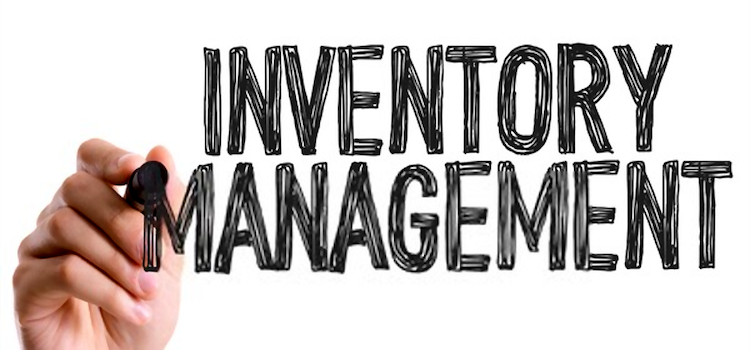

Quick Links
Quick Links
Shopify inventory management refers to a systemic approach to sourcing, storing, and selling your products. This includes both components or raw materials and finished goods. Ultimately, it means you have the right kind of stock at the right levels at any given time. It also means that your stock is stored in the right place at a reasonable price.
Regardless of your niche, inventory management plays an essential role in growing your business. When done right, it can help you prevent inventory shrinkage, product spoilage, and even deadstock.
Moreover, a well-implemented system can help reduce storage expenses and give you a better understanding of your business. It can also help you forecast future demand and keep your store organized.
With a little planning and effort, you can develop a system that jives well with your business goals. But you don’t have to do it all by yourself.
Today, we’ll be talking about how you can outsource inventory management for your Shopify store.

When to Outsource Inventory Management to a Freelancer?
As your e-commerce company grows, your to-do list as a business owner will most likely grow longer as well. While you generally want to be more hands-on in the beginning and understand every process that goes into running a Shopify store, there will come a point when you will need to hand over the reins to someone else.
Shopify inventory management can take a big chunk of your time. You need to think about the opportunity cost of performing these tasks every day. As your business gets bigger, you need to understand that there are more important things you could be doing instead of tracking how much stock you have left.
This is where freelance inventory managers can come in handy. You’ll know you’re ready to let someone else take over this task if:
- You are already familiar with inventory management process and you feel like you can easily teach it to someone else
- You know you could be doing bigger and more important things if you have the time to spare
- Some of the tasks do not come naturally to you and are better off delegated to an expert
- You don’t necessarily need full-time help but having someone to take over the task of managing inventory can be of great help to you

Shopify Inventory Management Tasks You Can Outsource
Inventory management is one of the most important aspects of every Shopify business. It creates a pleasant shopping experience for your customers by ensuring that they are able to purchase your products when they need it.
There are a handful of Shopify inventory management tasks you need to handle every day to ensure that you never run out of stock. However, some business owners don’t always have the time or the expertise to handle it.
But don’t worry because Shopify inventory management can be simple when you outsource it. Here are some of the tasks that you can delegate to freelance inventory managers:
Evaluating Suppliers
Shopify inventory management starts with finding the right supplier who can provide your company with sellable goods or raw materials for your products. When needed, they can also help you find other suppliers who can provide your business with materials at reasonable costs.
They can also help you create a good working relationship with suppliers by communicating with them and dealing with issues such as delays in processing orders.

Understanding Product Demand
A skilled inventory manager can help you get a better handle on how demand fluctuates for your product category over the long-term. They can use tools like Google Trends to determine search demand and interest for products like yours over the course of 12 months up to five years.
They can help you see when interests for your products wane and wax. This helps you determine when to stock up on inventory and when to order or manufacture less of the products you sell.
Shopify inventory management freelancers can also evaluate your website. They can determine which pages and products your audience visits the most and how long they spend there. By knowing which products attract more attention, you’ll get a better understanding of which products are popular among your target audience and require more buffer stock to accommodate the demand.
An inventory manager can also help you look ahead and find major selling opportunities and plan for the increased demand.
With this level of foresight, a skilled inventory manager can order and store inventory to prevent any items from going out of stock or from spoilage during peak demand times.

Identifying the Products that Need More Attention
If you’re selling a wide range of items in your online store, chances are you have high-value, moderate value, and low-value products. Each category needs varying degrees of prioritization from an inventory management perspective.
A Shopify inventory management freelancer can help you identify which of your products fall under a specific category to determine the appropriate frequency or schedule of restocking.
High-value products with a low frequency of sales need to stocked less but ordered more often. This is because you’ll ultimately have fewer of these items on hand. Meanwhile, low-value products with a high frequency of sales need to be ordered less often but in bigger quantities to accommodate the demand for it. Finally, moderate value products with a moderate frequency of sales, an inventory manager needs to identify the minimum viable stock for it and order more inventory once numbers fall below it.

Managing Inventory Documentation
A freelance inventory manager can help manage inventory documentation for your e-commerce business. They can accurately record the characteristics of the inventory including quality, quantity, type, style. This helps you understand what is and isn’t available at any given time.
This can help avoid shrinkage because there’s always a running tally of your inventory stock. Furthermore, you can utilize inventory documentation to determine strategies for when you need to move inventory.
For smaller e-commerce companies, the task of purchasing new inventory can fall into the hands of a freelancer. Apart from maintaining a good relationship with suppliers, an inventory manager can help refill your stock once certain items start running low. They can order more products from the supplier and negotiate the pricing and the timeline for delivery.
Tracking Inventory
Central to Shopify inventory management is tracking the amount of stock you have at all times. A freelancer can help you in preventing overstocking items which may lead to storage issues. Furthermore, a freelance inventory manager will also be able to track your stocks so you can deliver the right products to your customers at all times.

Setting Minimal Stock Levels
As an accompanying task to tracking inventory, a freelance inventory manager can also help you identify and set a minimum viable stock for your business. Overstocking can have financial repercussions for your business. One of the goals of an inventory manager is to determine the lowest possible inventory you can have that still meets demand and avoids delays in fulfillment.
An effective Shopify inventory management strategy is anchored on a deep understanding of customer demand. In addition, it requires knowing the amount of time it takes to replace out-of-stock or dwindling inventory. A freelancer can set the minimum stock levels that allow for effective order fulfillment for you. When the number dips, he or she can start placing orders for new stock.
Preparing for Seasonality
E-commerce businesses often rely on shopping seasons to make the most sales. An inventory manager can help you prepare for the holidays or a specific time of year when demand for your products is high.
They can identify the right time to ramp up your supply so you’ll have enough stock to meet the demand of your customers.
Once the end of the peak season nears, they can create promotional offers to sell off the inventory that did not get sold to avoid carrying too much dead stock.
Once the leaner season arrives, a freelance inventory manager can help with inventory control and maintain the right balance of stock in your warehouse. This can help prevent profit losses due to product expiration, damage, or obsolescence.

Implementing an Inventory Management Software
A skilled inventory manager doesn’t just rely on manual processes but instead values software and its role in scaling a business. They understand that managing inventory can take a lot of time. Moreover, it can be difficult to track and update stock levels across all your sales channels when done manually.
This is why inventory management software is crucial for your e-commerce business. Integrating it into your business strategy ensures you’re never understocked or overstocked. It also syncs inventory tracking across all the channels you sell products on. Furthermore, it compiles real-time data that can be used for boosting sales and growing your e-commerce business.
Shopify inventory managers are already familiar with using the Shopify app store to manage your inventory. They understand how to use different apps with the platform to track and adjust inventory and hide out-of-stock products. They also know how to use these tools to transfer stocks from suppliers, transfer inventory in-between location. In addition, they can also use it to export or import inventory with a CSV file.
In addition, a freelancer can also help augment your current inventory management strategy by introducing you to new software you may not be familiar with. They can suggest software with extensive and detailed inventory tracking that seamlessly integrates with the other apps you use.
Outsource Your Shopify Inventory Management to a Freelancer You Can Trust
If you’re not sure where to start with finding Shopify inventory management freelancers, we have good news for you! At FreeUp freelancer marketplace, you can find pre-vetted inventory managers who can help scale your business.
Simply create a free account on the Free Up website to gain access to the marketplace. After that, you can start submitting requests for a Shopify inventory management freelancer or agency.
Want to stay updated about the Free Up freelancer marketplace? Don’t forget to visit our Facebook page to get first dibs on business tips from our community!
